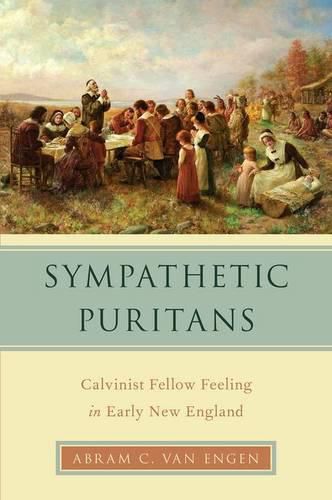Readings Newsletter
Become a Readings Member to make your shopping experience even easier.
Sign in or sign up for free!
You’re not far away from qualifying for FREE standard shipping within Australia
You’ve qualified for FREE standard shipping within Australia
The cart is loading…






Revising dominant accounts of Puritanism and challenging the literary history of sentimentalism, Sympathetic Puritans argues that a Calvinist theology of sympathy shaped the politics, religion, rhetoric, and literature of early New England. Scholars have often understood and presented sentimentalism as a direct challenge to stern and stoic Puritan forebears; the standard history traces a cult of sensibility back to moral sense philosophy and the Scottish Enlightenment, not Puritan New England. Abram C. Van Engen has unearthed pervasive evidence of sympathy in a large archive of Puritan sermons, treatises, tracts, poems, journals, histories, and captivity narratives. He demonstrates how two types of sympathy – the active command to fellow-feel (a duty), as well as the passive sign that could indicate salvation (a discovery) – permeated Puritan society and came to define the very boundaries of English culture, affecting conceptions of community, relations with Native Americans, and the development of American literature.Van Engen re-examines the Antinomian Controversy, conversion narratives, transatlantic relations, Puritan missions, Mary Rowlandson’s captivity narrative – and Puritan culture more generally – through the lens of sympathy. Demonstrating and explicating a Calvinist theology of sympathy in seventeenth-century New England, the book reveals the religious history of a concept that has previously been associated with more secular roots.
$9.00 standard shipping within Australia
FREE standard shipping within Australia for orders over $100.00
Express & International shipping calculated at checkout
Revising dominant accounts of Puritanism and challenging the literary history of sentimentalism, Sympathetic Puritans argues that a Calvinist theology of sympathy shaped the politics, religion, rhetoric, and literature of early New England. Scholars have often understood and presented sentimentalism as a direct challenge to stern and stoic Puritan forebears; the standard history traces a cult of sensibility back to moral sense philosophy and the Scottish Enlightenment, not Puritan New England. Abram C. Van Engen has unearthed pervasive evidence of sympathy in a large archive of Puritan sermons, treatises, tracts, poems, journals, histories, and captivity narratives. He demonstrates how two types of sympathy – the active command to fellow-feel (a duty), as well as the passive sign that could indicate salvation (a discovery) – permeated Puritan society and came to define the very boundaries of English culture, affecting conceptions of community, relations with Native Americans, and the development of American literature.Van Engen re-examines the Antinomian Controversy, conversion narratives, transatlantic relations, Puritan missions, Mary Rowlandson’s captivity narrative – and Puritan culture more generally – through the lens of sympathy. Demonstrating and explicating a Calvinist theology of sympathy in seventeenth-century New England, the book reveals the religious history of a concept that has previously been associated with more secular roots.